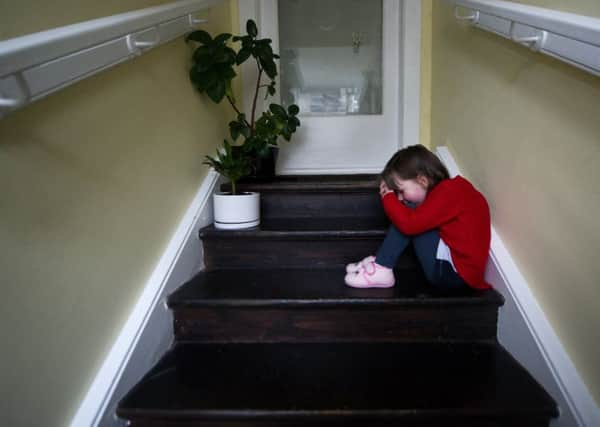Protecting children '¨from abuse must be the paramount consideration of the courts


Over the past ten years, 19 children have been murdered by violent fathers after they were granted contact with sons and daughters by judges, according to a report, covering England and Wales, by charity Women’s Aid. In 12 cases, contact had been granted to the fathers through the family courts, with a further six agreed in family court hearings and the other via a non-molestation order and occupation order.
The report and an accompanying briefing by Westminster’s all-party parliamentary group on domestic violence prompted a review by Sir Stephen Cobb, a senior family judge at the High Court of England and Wales.
Advertisement
Hide AdAdvertisement
Hide AdMr Justice Cobb’s review called for the presumption, in England and Wales, that both parents should have contact with their child to be scrapped if there is evidence of domestic violence.
Sir James Munby, president of the family division of the High Court of England and Wales, endorsed this recommendation in last month’s View from the President’s Chamber. He noted: “These are problems that can no longer wait.”
The Cobb Review highlights the differences between Scots law and the law of England and Wales on the issue of contact between children and their parents. In Scotland, no presumptions apply in these matters. The 2006 Family Law (Scotland) Act made changes to the 1995 Children (Scotland) Act to ensure courts took abuse or the threat of abuse into account when granting parents contact with their children.
The fundamental principle in the Children’s Act is very clear: “The court shall regard the welfare of the child concerned as its paramount consideration and shall not make any such order unless it considers that it would be better for the child that the order be made than that none should be made at all.” Cutting through the legal language, it is clear judges need to adopt a child-centric approach and think about the child’s safety.
The Family Law Act spells out the responsibilities of the court to “protect the child from any abuse, or the risk of any abuse, which affects, or might affect, the child”, and to have regard to “the effect such abuse, or the risk of such abuse, might have on the child”. It is important to note that, as well as protecting the child from abuse, the legislation also protects the child from being exposed to abuse of others who have care of them.
The Cobb review also recommended ending the right of alleged perpetrators in England and Wales to cross-examine survivors of domestic violence in the family courts. The practice has been banned in criminal courts for 15 years.
Justice Minister Sir Oliver Heald last month told the House of Commons the government would bring forward primary legislation to ban cross-examination of domestic violence survivors by their alleged abusers in the family courts of England and Wales. With the practice already outlawed in criminal court cases, north and south of the Border, the template has been laid for similar prohibition in the family courts.
In Scotland, domestic abuse survivors may be classed as “vulnerable witnesses” who can access a variety of special measures, but there remains the possibility of an abuse survivor being cross-examined by an abuser in a civil court.
Nicola Buchanan is a solicitor in the family law team at BLM